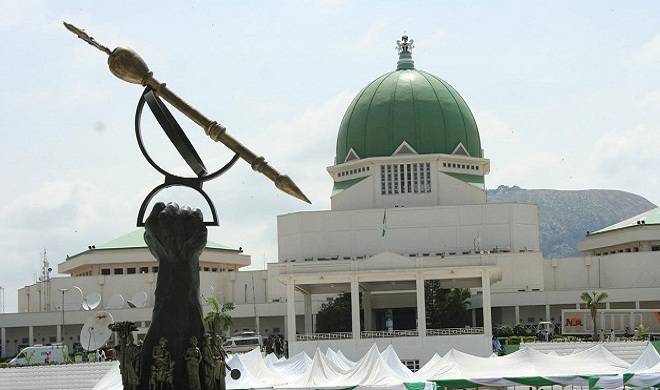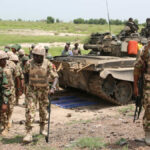
The Niger Delta region is a monumental challenge. Its terrain is difficult. But nature, in its own wisdom, chose to bury hydrocarbon in its creeks – onshore and offshore. The exploitation of crude oil in the region beginning at Oloibiri in 1956, has not made the lives of the people in the region less brutish.
Oil pollution has periodically poisoned their water, their main source of livelihood, being traditionally fishermen and women. The destruction of their land, something that goes by the fanciful name of environmental degradation, has compounded their problems of food production. The rest of the world has chafed and howled at this, insisting that the Nigerian state, the main beneficiary of the crude oil economy, is duty bound to use the oil wealth to make the lives of the people progressively less brutish.
Ken Saro-Wiwa took up the battle in respect of Ogoniland, drawing world attention to the plight of his people. He was tremendously successful in placing the moral burden on both the Nigerian state and Shell. Thanks to his courageous struggle, Shell was forced to make itself absent from Ogoniland, perhaps the most productive area of its crude oil exploitation. But, as often happens in matters of this nature, Saro-Wiwa became a victim of his noble cause. Crisis among the leaders of the Ogoni community led to the murder of some of their leaders. The Nigerian state charged Saro-Wiwa and his group with the murder; tries them, found them guilty and hanged them.
Their death did not end the people’s struggle for their land to be made safe again for human habitation and to be fairly and justly treated by the Nigerian state. All these years, the Nigerian state has had to find an answer to one simple question on the Niger Delta challenge, to wit: what should the state do about it?
Attempts to answer it has brought a plethora of views and, to be fair, some applied solutions that solved less and, in some cases, compounded the problem. To put it another way, those proffered solutions proved less than comprehensive or satisfactory. The consequence was the self-help option by the people. Their youth became restive, leading to the eventual emergence of several militant groups that took to sabotaging oil exploitation and exportation – and with their hands on the jugular of the Nigerian economy. Through the late President Umaru Yar’adua’s amnesty programme, the youths abandoned violence and militancy. Although the guns have fallen silent in the region, the challenges and the problems still stare the Nigerian state in the face. It dares not blink.
Perhaps, the latest initiative on the Niger Delta was the launch of the $10 billion infrastructure fund by President Muhammadu Buhari in October 2016. The fund was intended to make violence in the region history by opening up the region to individual and group economic and commercial initiatives leading to the ultimate objective – sustainable development. The fund was to be sourced from federal and state governments, the oil companies and, to use the omnibus phrase, other stake holders.
Nearly two years after the launch of the fund, nothing seems to be happening. The Guardian newspaper became curious about this and decided to go on the trail of the fund. Is it missing or is it sitting in a bank vault somewhere? The newspaper published its investigation in its issue of June 10. From its findings, it could not categorically establish evidence for the existence of the fund anywhere. There is something patently opaque about it. Those who should know appear to be suddenly afflicted with amnesia. This attitude has not been particularly strange to efforts to address the problems of the region. And that is why the gap between promises and their fulfilment continues to widen, giving rise to fears that the youths might carry out their threat to return to the creeks again.
In the circumstances, the federal government’s failure to carry through its $10 billion development initiative, is attracting some tough-talking old and young men back to the stage. The newspaper quoted extensively from recent speeches by two prominent Niger Delta leaders, Ledum Mitee, former president of the Movement for the Survival of Ogoni People, MOSOP, and Chief Edwin Clark, two redoubtable men among many who have been in the trenches for so long in the struggle for fairness and justice for their people. In sum, both of them decried the fact that their people have not received and are not receiving fairness and justice in the hands of the Nigerian state.
This period of peace in the region is the best time for the federal government to show some seriousness in tackling the Niger Delta challenges. It does not take rocket science. It only takes demonstrable commitment. The people must not be led to believe, as Mitee warned, “that the only time they get attention is only when they resort to some violence.” Nor should we ignore his warning that “the next generation of agitators are going to be far more vicious than the present ones.”
That cannot be good news. The ball, of course, is in the court of the Nigerian state. The Niger Delta is a special case, a fact duly recognised by the colonial authorities long before crude oil made the grade, and must be seen to be so treated by the federal government. If it acts now and tells us where the $10 billion is and what is being done with it, it would help to moderate the frustrations of the people and rekindle their hope in the willingness and the capacity of the Nigerian state to be fair and just to them. And perhaps, the more vicious next generation of militants would make no appearance in the labour wards.

 Join Daily Trust WhatsApp Community For Quick Access To News and Happenings Around You.
Join Daily Trust WhatsApp Community For Quick Access To News and Happenings Around You.

